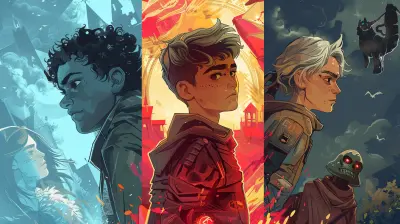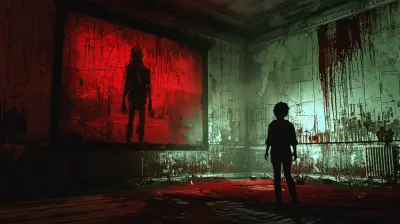The Hidden Lives of E-Sports Pros: What Happens Behind the Scenes
9 May 2025
When you think of e-sports pros, chances are, you imagine them living the dream—playing video games for a living, traveling the world, cashing in huge prize pools, and basking in the adoration of millions of fans. Sounds like the ultimate gamer fantasy, right? Well, hold your controllers, because there’s way more to the lives of these players than meets the eye.
In this article, we'll pull back the curtain on the hidden lives of e-sports pros and dig into what really happens when the cameras aren't rolling. From grueling training schedules to mental health pressures, it’s not all GG (good game) for these digital athletes. So grab your favorite gaming snack, and let’s dive in!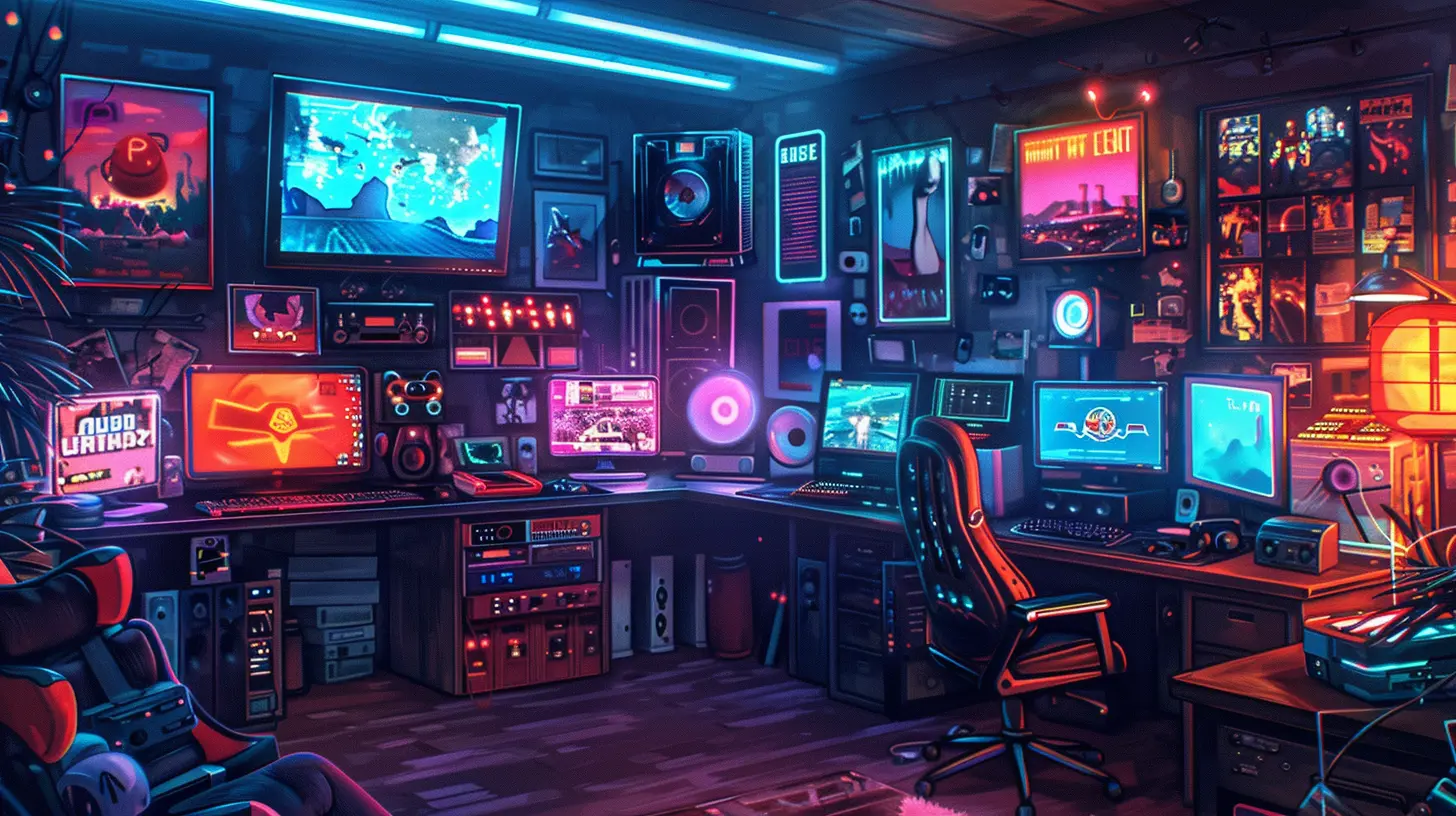
The Rigorous Grind: It’s More Than Just “Playing Games”
It’s easy to assume that pro gamers simply sit around playing their favorite titles all day. But did you know that most e-sports players follow training regimens just as demanding as traditional athletes? A typical day for a pro gamer often involves 8-12 hours of practice. Yep, you read that right—up to half the day is spent in front of a screen, refining skills, studying opponents, and coordinating with their team.To put it in perspective, imagine grinding through the same levels or maps over and over like you're stuck in a real-life "Groundhog Day." That’s the dedication it takes to perfect reflexes, memorize strategies, and build the muscle memory needed to perform at lightning-fast speeds. It’s not just gaming; it’s work. Mental fatigue? That comes free with the job.
A Glimpse Into Their Schedule
Here’s a quick breakdown of what a typical day looks like for an e-sports pro:1. Morning Warm-Ups
They might spend the first hour or two doing warm-ups—think reaction drills, aim-training exercises, or even light cardio workouts.
2. Scrimmages and Team Practice
This is where the magic happens. Teams practice together to nail down strategies, enhance communication, and strengthen their synergy. It’s like watching a symphony come together, except it’s all happening on a digital battlefield.
3. Review and Study
Post-practice, they dive into game replays to analyze mistakes and strategize for future matches. Imagine reviewing a chess game, but on steroids.
4. Solo Practice
When team time is over, the grind continues solo. Hours are spent perfecting individual skills, experimenting with mechanics, or climbing ranked ladders.
It’s intensive, and it starts to sound less like fun and more like a job, doesn’t it?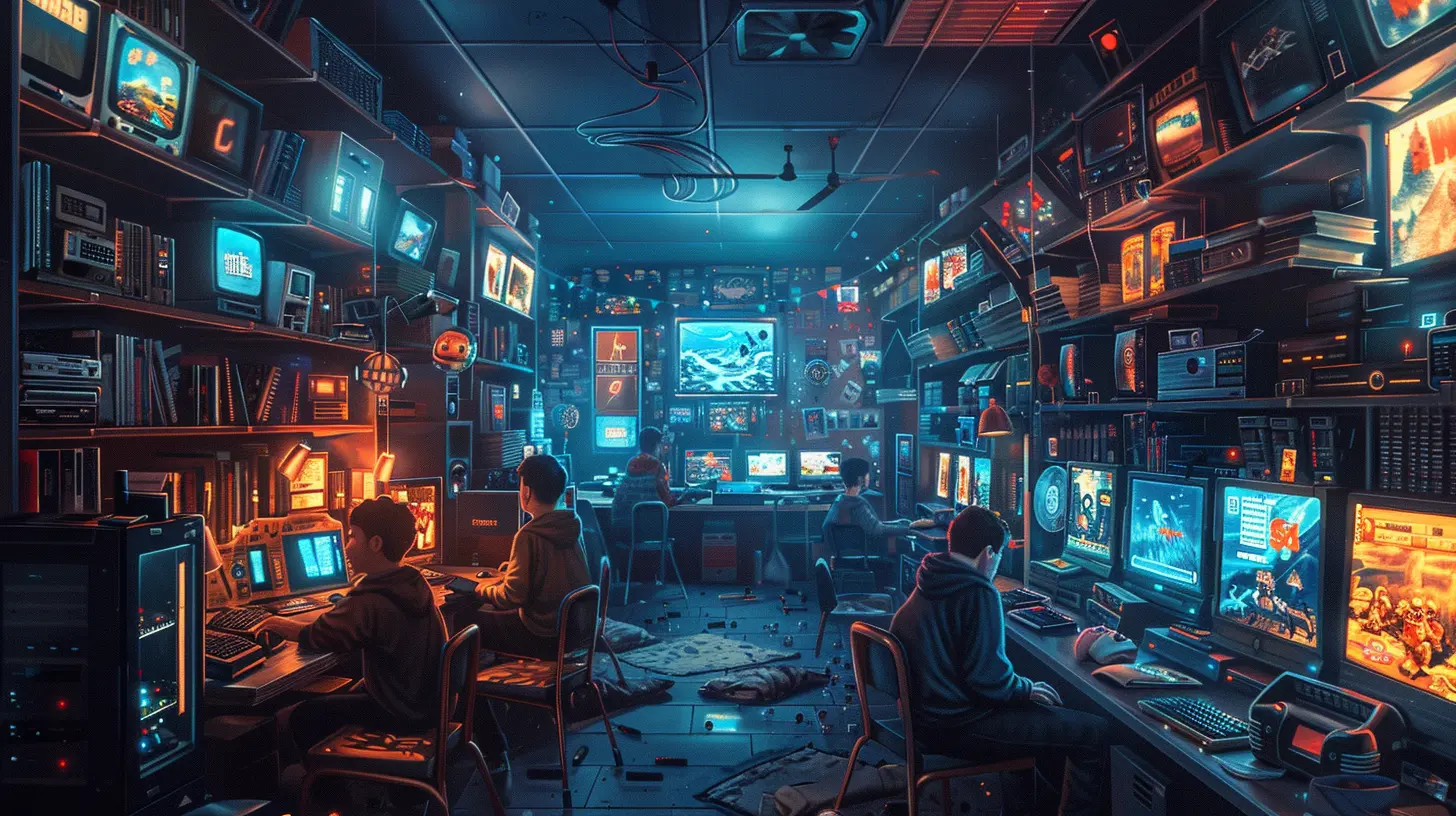
The Pressure of Perfection: The Mental Toll of E-Sports
Ever had sweaty palms during a ranked match? Now imagine competing in front of thousands—or even millions—of viewers, with your every move scrutinized. For e-sports pros, the stakes are incredibly high. Careers are often tied to performance, and the margin for error? Almost nonexistent.The mental strain these players face can’t be overstated. They’re not just battling opponents; they’re battling stress, burnout, and sky-high expectations. Think of it like balancing on a tightrope while the whole world watches. One misstep can send them plummeting.
Burnout: The Silent Enemy
Pro gamers are particularly prone to burnout. Why? Because their careers demand them to be “on” almost all the time. Between tournaments, endless practice, and the pressure to maintain an online presence through social media and streaming, there’s hardly any room to breathe. It’s not uncommon for players to retire in their early 20s simply because the grind becomes unsustainable.The Stigma Around Mental Health
The gaming community has come a long way, but there’s still a stigma around addressing mental health struggles. For many players, admitting to struggles feels like admitting weakness. But some brave players, such as League of Legends star Jian "Uzi" Zi-Hao, have spoken out about their experiences, paving the way for others to prioritize their well-being.
The Physical Side of Gaming: Not As Sedentary As You Think
Wait, pro gamers and physical health? Aren’t these guys just sitting in chairs all day? Well, yes and no. While gaming is undoubtedly a sedentary activity, e-sports pros still need to stay in good physical condition. Why? Because their performance is directly linked to their overall well-being. Poor posture, lack of sleep, and bad eating habits can make or break their careers.Gaming-Related Injuries
Here’s a fun fact (well, not fun for them): many e-sports players suffer from repetitive strain injuries (RSIs), like carpal tunnel syndrome or tendinitis. Imagine your wrists being so painful that you can’t even hold a controller or a mouse. When that happens, it’s game over—literally.To combat this, many teams now hire physical therapists and personal trainers to keep players in tip-top shape. Stretching, massages, and ergonomic setups are just as important as headshots and kill streaks.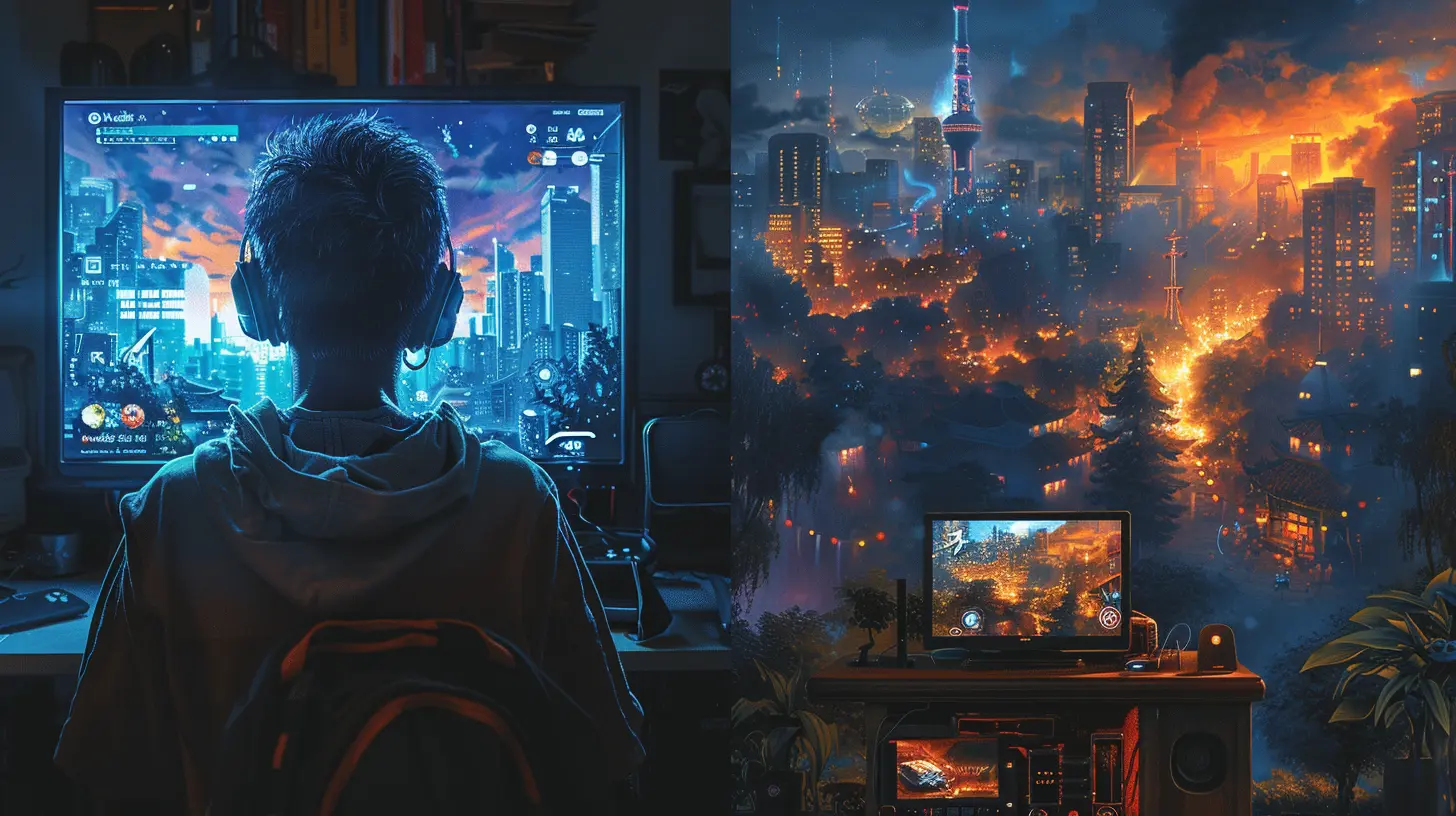
The Role of Team Dynamics: More Than Just Teammates
On paper, an e-sports team might look like a group of gamers working together to win tournaments. But behind the scenes, they’re more like a family. And like any family, there are highs and lows.Living in team houses or boot camps can create some serious tension. Imagine being stuck in a house with your coworkers 24/7, all while under immense pressure to deliver results. Disagreements are bound to happen, and managing egos is no small feat!
Coaches and Support Staff
Did you know that nearly every professional team employs a coach? These unsung heroes work tirelessly to analyze matches, create game plans, and keep the team focused. Some teams even have psychologists, nutritionists, and even chefs to take care of their players’ needs. In a way, they’ve turned gaming into a full-fledged ecosystem.Fame and Loneliness: The Double-Edged Sword of Stardom
Becoming an e-sports star might sound glamorous, but fame can be a double-edged sword. Players often gain massive followings on social media, with fans lining up to watch their every move. But all that attention comes at a price.Many e-sports pros struggle with loneliness. Their schedules leave little time for personal relationships, and constant travel means they’re rarely at home. It’s like being a rockstar but without the afterparties—just flights, hotel rooms, and the same 5 teammates day in and day out. Fame can feel isolating when your world is reduced to pixels and pings.
Toxic Communities and Online Harassment
To make matters worse, toxic gaming communities can add fuel to the fire. Players frequently face harsh criticism, death threats, and trolling, even after stellar performances. Imagine giving your all during a championship match, only to be inundated with hate-filled messages in your chat afterward. It’s enough to make anyone think twice about their career.The Financial Reality: Jackpot or Just Enough?
Let’s talk money. Yes, e-sports professionals can make bank, especially at the top levels, where prize pools can reach millions of dollars. But here’s the catch—not everyone is rolling in dough. Most players rely on salaries from their organizations, which can vary widely depending on the game, region, and success level.Sponsorships and Streaming: The Real Payday
The big bucks often come from sponsorships and streaming. Brands love plastering their logos on jerseys, keyboards, and even gaming chairs. And when players stream, they can make a fortune in donations, subscriptions, and ad revenue. But it’s not easy money—it takes time, energy, and charisma to engage fans and build a loyal following.Retirement at 25? Life After E-Sports
Here’s something you might not know: most e-sports players retire by their mid-20s. That’s because the industry is insanely competitive, and younger players with faster reflexes are always waiting in the wings. What do pros do after retirement? Some become coaches, streamers, or content creators. Others step away from gaming entirely and pursue new careers.But transitioning out of e-sports isn’t always smooth. Without proper financial planning or a backup plan, many pros find themselves struggling to adjust to life beyond their gaming chairs.
Final Thoughts
The hidden lives of e-sports pros are anything but easy. Behind the bright lights and thrilling matches lies a world of hard work, sacrifice, and challenges that most outsiders never see. It’s not all glamorous—it’s gritty, demanding, and sometimes downright exhausting. But for those who love the game, it’s worth every bit of the grind.Whether you’re a fan cheering from the sidelines or an aspiring player dreaming of the big leagues, remember this: e-sports isn’t just about winning. It’s about the journey, the struggles, and the sheer passion that fuels this incredible industry. And that’s something we can all respect.
all images in this post were generated using AI tools
Category:
E SportsAuthor:

Luke Baker
Discussion
rate this article
4 comments
Romina Benson
Behind the glam, it’s all grind and drama!
May 12, 2025 at 4:10 PM

Luke Baker
Absolutely! The journey is filled with hard work and challenges that often go unseen.
Mika Cooper
This article sheds light on the often overlooked struggles of e-sports pros. It's important to remember that behind every victory are sacrifices and challenges. Thank you for highlighting their dedication and resilience in this competitive world.
May 12, 2025 at 4:10 AM

Luke Baker
Thank you for your insightful comment! I'm glad you found the article important in recognizing the sacrifices e-sports pros make. Their dedication truly deserves our attention.
Shiloh Kirk
Behind the screens, more drama than a soap!
May 11, 2025 at 4:50 PM

Luke Baker
Absolutely! The intense rivalries, personal struggles, and teamwork dynamics in esports can rival any soap opera storyline.
Mariana Baxter
This article sheds light on the often overlooked sacrifices e-sports professionals make for their passion. Understanding the hidden challenges they face emphasizes the importance of mental health and work-life balance, reminding us that success is rarely as glamorous as it appears.
May 10, 2025 at 3:22 AM

Luke Baker
Thank you for your insightful comment! It's crucial to recognize the sacrifices e-sports pros make and the importance of mental health in their journey.
